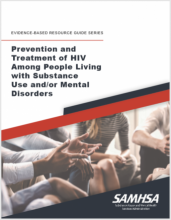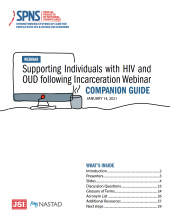
Harm reduction strategies and tools should be accessible to everyone – regardless of location, time, and/or experience.



Harm reduction strategies and tools should be accessible to everyone – regardless of location, time, and/or experience.
Methadone can be a life-changing treatment option for people with opioid use disorder. However, a number of federal and state regulations and logistical requirements can inhibit a person’s ability to start and/or maintain methadone treatment.
Building on last month’s episode about providing HIV and substance use care for people who are incarcerated, this month the Boston Medical Center Team talks with Dr.
Navigating the HIV and substance use systems of care presents a number of unique challenges, many of which can become more complex depending on a person’s housing, employment, mental health, or economic situation.
In response to an increased risk of overdose, several communities in the U.S. are considering establishing spaces for people to use substances safely.
The growing opioid crisis across the United States has resulted in an increase in new HIV diagnoses.
This month’s Connecting Care episode is the second in a two-part series about treatment for Hepatitis C Virus (HCV) among people with opioid use disorder.
This month’s Connecting Care episode continues the conversation about barriers to methadone treatment for patients, stigma, and what we can learn from other countries to advance policy and practice for methadone in the US.
This month’s Connecting Care episode discusses the challenges associated with entering and staying in methadone treatment programs and opportunities to improve treatment experiences for all.
In Los Angeles, New York, Houston, Philadelphia, and Washington, D.C., a National Institutes of Health funded clinical trial, known as INTEGRA, is evaluating the efficacy of delivering integrated HIV and substance use disorder care via mobile clinics.